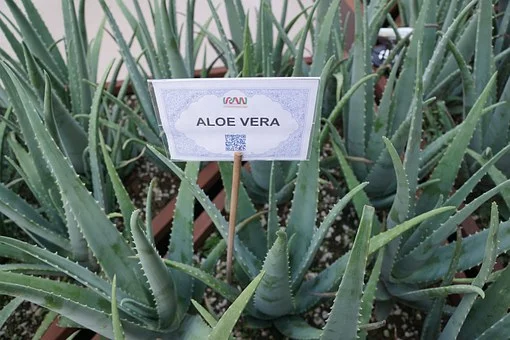Sign up to our newsletter!
No matter if you are moving, or improving, our newsletter is packed with the best tips, tricks and ideas to help you dwell well.
You may already have a spare room which could be designated a home office, but at short notice, lots of us will have to identify a specified work space.
Having a designated workspace is important for many reasons. It makes it easier to draw the line between personal and work time and also mentally ‘switch on to work’ or ‘switch off’ at the end of the working day.
In the office, we are all subject to work place assessments for the environment in which we work. Chairs and desks are assessed to minimise and reduce multi-skeletal issues associated with posture, and sitting for long periods of time.
Whilst, ordering new chairs or desks on line may not be possible at this time, the HSE workstation assessment, can help you improvise and make the best of what you have at this present time.
Poor lighting can cause headaches and eye strain and even force you to adapt uncomfortable positions to see the screen whilst creating severe neck pain in the process.
Natural light is always better, so where you allocate your home working zone, wherever possible should take this in to consideration. Ideally your desk should be at right angles to the window. This will avoid glare from the sunlight, provide natural light and allow you to access natural breaks from the screen but not stare continually out of the window!
And don’t forget to open the window for ventilation. It also helps with concentration and opening a window for at least five minutes a day helps decrease the concentration of indoor air pollutants.
There are a number of plants to consider, but we recommend the following:
English Ivy. According to NASA, English ivy is the very best air-filtering plant there is. It’s also incredibly easy to grow and can be used as either a hanging plant or a floor plant.
Rubber Tree. One of the easiest plants to grow, rubber plants are a low maintenance choice which are fantastic at eliminating toxins. They also thrive in dim lighting and cooler temperatures, so are perfect for the British climate.
Bamboo Palm. Another one of NASA’s top choices, the Bamboo Palm is great at getting rid of benzene and trichloroethylene, helping keep your home nice and stress-free. They do require a lot of water, but aren’t too difficult to keep looking great.

Essential to protect computers and other electronic devices from all but the strongest power surges and prevent damage to the equipment that's plugged into them. They are not expensive and prices start from as little as £15.
We probably do not realise how much we get up from our desks in the work environment, attend meetings etc, but home working can often mean we have fewer distractions and sit for longer periods. We all know the health issues risked with inactivity so having a workstation you can both sit and stand at will have the following benefits for your health:
To support your home working rather than hinder it.
There are many options available with all major providers and it is worth giving them a call or visiting their websites for the services they can provide if you are going to be a regular home worker. However, there are some considerations and financial implications:
In the work environment, we usually have corporate regulations and legislation for storing data and protecting data. It is no different at home. Personal info (even handwritten notes) should not be discarded in the recycling or domestic bin. GDPR and data protection applies at home. Computers should be encrypted if they hold any personal data and all paperwork should be locked away, scanned and protected or shredded.
If you have equipment provided by your employer, it should be encrypted and home working regulations provided. However, if you are using your own equipment – make sure you back-up, store any data securely and avoid discarding without shredding. If you don’t have a shredder, you could try ordering online shredder scissors, which are effective for small volumes of paper.
If home working will be a regular occurrence in the future, it is worth considering storage, security, fireproof cabinet or box, shelving
It is so easy to lose track of time when home working without distractions and other team members around you. In the workplace we are regulated by the working time directive. All workers are required to take a 20-minute break if the working day is longer than 6 hours and these 20 minutes cannot be taken at the start or the end. These workplace regulations are in place for health and safety reasons, and working from home should be no different.
Whilst home working may give flexibility from putting a wash in during your 20-minute break whilst eating a sandwich and preparing evening meal, or avoiding the morning and evening commute on overcrowded trains or rush hour traffic etc… It is important for regular breaks to be taken and managing your time. It is very easy to keep on working or respond to an email late in the evening, but this is not always productive and often the refreshed response the following morning is more appropriate!
See more Healthy and Sustainable Home articles
Thank goodness for Harry, the very best thing about home working!

At the time of the survey none of the 100+ respondents stated a home office or work space as important in their future home.
Fast forward a few weeks, just as we had planned to release our findings and recommendations, things changed dramatically for us all.
We now think it may be a realistic requirement for all our future homes. Who knows how our working environments will change forever but there are things we can practically do now to make our home working environment more sustainable, healthy and productive, regardless of size, type, space and situation?
Unfortunately, some of our suggestions will have to wait until things get back to normal, but are worth considering, whilst we all meet the challenges of enforced and potentially unplanned home working.
Sign up for our newsletter for more information about healthy and sustainable living.
Live well with Moving and Improving